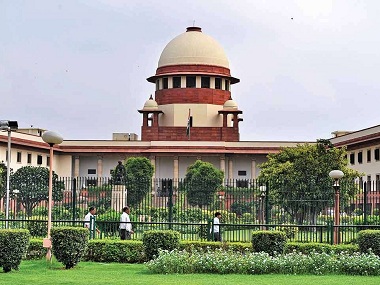The All India Muslim Personal Law Board (AIMPLB), in an affidavit before the Supreme Court on Wednesday, has said that the entry of women into mosques to offer prayers is permitted in Islam and ‘fatwas’ contradicting this tenet should be ignored. The organisation said that while Islam permits women to pray in mosques, it does not make it mandatory for them to do so, as per a report by News18. The affidavit was filed in response to a petition filed by a Pune-based couple, Yasmeen Peerzade and Zuber Ahmad Peerzade, seeking directions from the Supreme Court to allow women to enter the place of worship. Livelaw has quoted the AIMPLB’s affidavit as saying, “Considering the said religious texts, doctrine and religious belief of the followers of Islam, it is submitted that entry of women in the mosque for offering prayer/namaz inside the mosque, is permitted.” [caption id=“attachment_6604251” align=“alignleft” width=“380”]  File image of Supreme Court of India. Reuters[/caption] However, the affidavit also says, “Islam has not made it obligatory on Muslim women to join congregational prayer nor is it obligatory for women to offer Friday namaz in a congregation, though it is so on Muslim men.” “The Muslim woman is differently placed because as per doctrines of Islam she is entitled to the same religious reward (sawab) for praying as per her option either in Masjid or at home,” it said. However, the AIMPLB contended that it is not appropriate for the top court to enter into questions of practices based upon religious beliefs. The affidavit said that religious practices in Mosques are regulated by private bodies concerning its _muttawali_s and the AIMPLB, being an expert body can only issue an advisory opinion based on Islam. “This court, for that matter, cannot enter into the arena of detailed arrangements of a religious place, which is completely privately managed entity for religious practices of believers in a particular religion,” said the affidavit. The top court Tuesday had said that its nine-judge Constitution Bench would hear within ten days questions related to the entry of Muslim women into mosques, female genital mutilation in the Dawoodi Bohra Muslim community and barring of Parsi women, married to non-Parsi men, from the holy fireplace at an agiary (fire temple), the place of worship for Zoroastrians. AIMPLB in its affidavit kept forward some topics to be deliberated upon by the nine-judge Constitution bench such as whether or not courts can judicially determine the meaning of faiths and the extent of constitutional protection from interference in their practices. With inputs from PTI
The AIMPLB said that while Islam permits women to pray in mosques, it does not make it mandatory for them to do so.
Advertisement
End of Article


)

)
)
)
)
)
)
)
)



